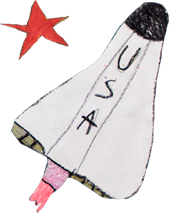Duke's tumor center sees progress through various angles of research
As Dr. Stewart Goldman of Children’s Memorial Hospital makes clear, it is only though collaborative efforts that a cure for pediatric cancer can be found. In partnering with Children’s as well as The Preston Robert Tisch Brain Tumor Center at Duke University, The Rory David Deutsch Foundation has not only supported the work of leading researchers at these institutions but also those in the field that communicate and cooperate with these institutions.
Through The Rory Deutsch Endowment Fund, Duke’s Tisch Brain Tumor Center continues to pursue a broad variety of projects aimed at advancing treatments of childhood brain tumors. Presently, there is a $1,609,556 book value of the endowment and a $2,412,000 market value, and the endowment is generating $65,000 to $75,000 of income each year. This income increases with each contribution to the endowment and with the increases in market value. “During the next year, these funds will be used to support two new recruits at the center,” according to Duke’s Darell D. Bigner, M.D., Ph.D., Cancer Research Professor at the Tisch Brain Tumor Center. “The first is a post doctoral fellow and the second a junior faculty member, both of whom will be developing new therapeutic approaches with targeted therapy against molecules preferentially expressed on pediatric brain tumors and not on normal brain.”
The impressive number of projects being supported by the fund includes work to determine the full genetic abnormalities in pediatric astrocytomas. “This is based on the advances of the human genome project and the National Cancer Institute projects in determining all of the genetic alterations in specific cancers,” explains Dr. Bigner. “The National Cancer Institute is not undertaking childhood brain tumors at present because the extensive information that they are acquiring will be posted on a public database and it is possible that the identity of the patients could be determined. We will obviate that by guarding confidentiality.”
A second basic molecular genetic study at Duke will involve the application of gene expression analysis to determine which growth signaling pathways are turned on in pediatric brain tumors. That information will then allow specific testing of agents inhibiting those signaling pathways to be implemented with childhood brain tumors. In addition, a major study performed on white blood cells from childhood brain tumor patients at Duke will be carried out to determine which genes that have to do with metabolism of cancer chemotherapeutic agents are present and active among different patients. “This information will help us do a better job of managing toxicity and therapeutic effect,” says Dr. Bigner. The Tumor Center will also conduct a study to identify new compounds that activate a set of enzymes called caspases, which can lead to programmed cell death in childhood brain tumor cells.
At Duke, a talented young investigator has identified a group of compounds that are inhibitors of the major signaling pathways involved in medulloblastoma. This investigator will soon begin studying a second signaling pathway to develop ways of inhibiting it. Another investigator is involved in the identification of so-called “cancer stem cells” or the “tumor initiating cells” in brain tumors—which is one of the major new research areas in all cancers. “This investigator has identified ways to purify those cancer stem cells from childhood brain tumors and has identified several of the major mechanisms of treatment resistance in those stem cells,” says Dr. Bigner. “Continued work in this area will lead to new therapy directed at eradicating these cancer stem cells.”
Also benefiting from The Rory Deutsch Endowment Fund is a project at Duke that centers on the development of radioimmunotherapy for medulloblastoma and astrocytic tumors of childhood with a peptide that binds the cells labeled with a radioactive isotope called L utecium-177. This work is anticipated to enter clinical trial during 2008 or early 2009. Other targeted therapies are being developed with antibodies and immunotoxins reactive with cell surface molecules on medulloblastomas and pediatric astrocytic tumors.
Some funds from The Foundation’s endowment are used each year to maintain the Tumor Center’s childhood brain tumor tissue biorepository, which is necessary to provide tissue for most of its research projects. “The endowment also helps us advertise our search for developmental research projects to our 350 faculty members, and supports the career development awards we present to outstanding young investigators in the early stages of their careers to help them reach independence,” says Dr. Bigner. “We greatly appreciate The Rory Deutsch Endowment. It’s quite simple; through this endowment The Foundation allows us to conduct childhood brain tumor research that would not be possible otherwise.”






















